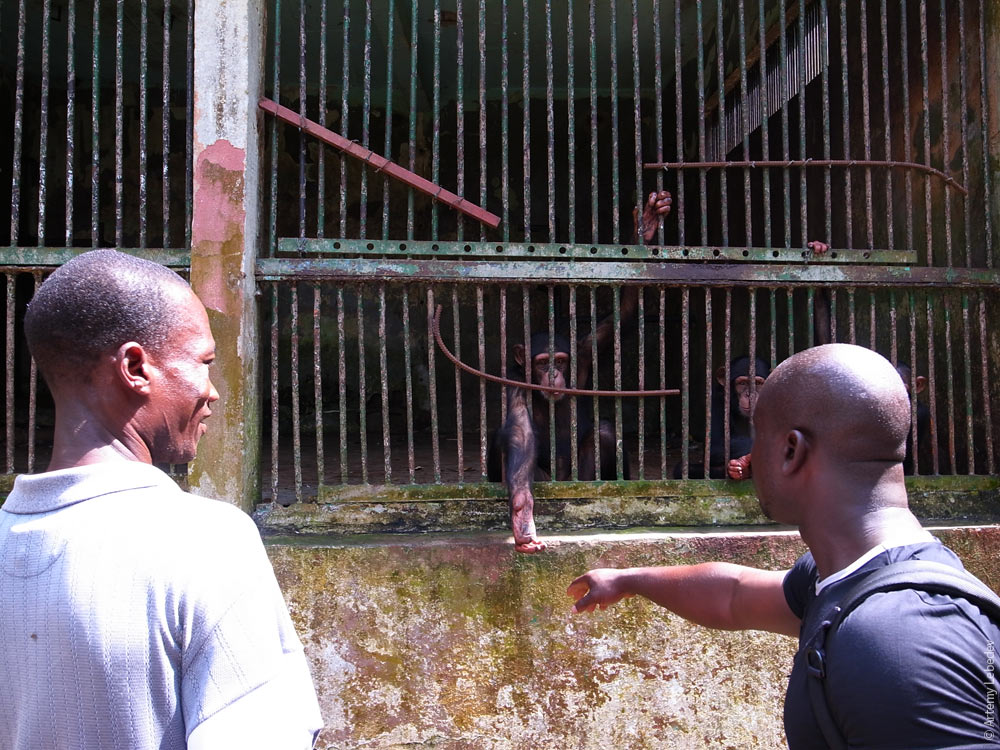Thursday, January 27, 2011
Wednesday, January 12, 2011
Names
Those of you who have names that you would like me to keep in mind under the chuppa this Sunday, Yud-Aleph Shvat, please send them to me to crawlingaxe@gmail.com. I will find a way for my kallah to receive those names too.
Monday, January 10, 2011
In the dark
This Shabbos I heard an interesting dvar Torah from Rabbi Shlomo Yaffe, one of the shluchim of Harvard.
It says in Torah that before each plague, Hashem “hardened the heart of Pharaoh”. As a result, Pharaoh did not let the Jews go, and each of the Ten Plagues happened. Many meforshim ask the question: “How could Hashem punish the Pharaoh if He Himself hardened the Pharaoh’s heart, taking away his freedom of will?”
Different answers are given (e.g., this was a punishment for the earlier sin of enslaving Jews in an exceedingly harsh manner), but Rabbi Ovadia ben Yakov Sforno (c. 1475–1550 CE) gives a fascinating answer: Hashem hardened the Pharaoh’s heart specifically to give him an opportunity to exercise his freedom of will. Most rulers, seeing their country devastated by supernatural cataclysms all because of a nation of slaves, would let the slaves go already! It would be a natural decision. But it would not necessarily be a free decision. Aderabe, it would be a decision influenced by the outside circumstances! By numbing Pharaoh’s heart to the effect of the plagues, Hashem gave the Pharaoh freedom to make a moral decision, coming only from Pharaoh himself.
This is paralleled to what Chassidus says is the reason of a Jewish soul’s descent into this world. The whole purpose for the creation of all reality is for G-d to establish a relationship with the Jewish soul. “Ana emloch” — “I shall be a king”, says Hashem. “Ein melech bli am” — there is no king without a nation. But a nation must choose the king freely. Otherwise, it’s not a nation of subjects, but a group of slaves. If G-d forces a soul to make a choice, the soul did not choose — G-d did.
So, when the soul is in the Upper Worlds, the worlds of truth, the worlds of revelation, it is basking in the G-dly Light, in the revelation of G-d’s Presence. There is no way for the soul to choose anyone or anything but G-d. There is no freedom of choice. Therefore, G-d created a world in which His Presence is completely concealed and then placed the soul into this world. Now the soul has a choice: between the material world which is very close and appealing and, lehavdil, G-d. That’s really what the whole point of this world is. “Everything is in the hands of Heaven except the fear of Heaven”. Nothing else matters. When the soul chooses G-d, it does so through the world, through aligning its will with the Will of Hashem and performing the mitzvos. And thereby crowns Him a king.
Now, we can expand this theme. When the soul existed in the Upper Realms, it had a relationship with G-d. But it was only a superficial relationship, in a sense. It was relationship based on the external revelation of G-d’s presence. Sure, it was very pleasant, very explosive and very real, but there was something lacking: the Essence of G-d which is beyond the concept of revelation.
Descending into this world, the soul was denied G-d’s external revelation. And thereby allowed itself access to G-d’s Essence (for, by choosing to follow G-d’s Will, the soul aligns its own essence, the source of its freedom of will, with the Essence of G-d, which is one with His Will expressed through Torah and mitzvos). From this, Chassidus (e.g., Rebbe Rashab’s ma’amor VeYadaita Moskva) draws an important rule: any concealment of gilui grants access to essence.
Any time we find ourselves in a dark, any time we are separated from that which we desire very much, we are given an opportunity to establish a relationship with our object of desire on a deeper, more essential level. Therefore, darkness and separation are not something negative. They are a gift, an opportunity to go beyond the surface, to make the relationship more essential and more real. They are always a preparation for a new, qualitatively greater, level.
It says in Torah that before each plague, Hashem “hardened the heart of Pharaoh”. As a result, Pharaoh did not let the Jews go, and each of the Ten Plagues happened. Many meforshim ask the question: “How could Hashem punish the Pharaoh if He Himself hardened the Pharaoh’s heart, taking away his freedom of will?”
Different answers are given (e.g., this was a punishment for the earlier sin of enslaving Jews in an exceedingly harsh manner), but Rabbi Ovadia ben Yakov Sforno (c. 1475–1550 CE) gives a fascinating answer: Hashem hardened the Pharaoh’s heart specifically to give him an opportunity to exercise his freedom of will. Most rulers, seeing their country devastated by supernatural cataclysms all because of a nation of slaves, would let the slaves go already! It would be a natural decision. But it would not necessarily be a free decision. Aderabe, it would be a decision influenced by the outside circumstances! By numbing Pharaoh’s heart to the effect of the plagues, Hashem gave the Pharaoh freedom to make a moral decision, coming only from Pharaoh himself.
This is paralleled to what Chassidus says is the reason of a Jewish soul’s descent into this world. The whole purpose for the creation of all reality is for G-d to establish a relationship with the Jewish soul. “Ana emloch” — “I shall be a king”, says Hashem. “Ein melech bli am” — there is no king without a nation. But a nation must choose the king freely. Otherwise, it’s not a nation of subjects, but a group of slaves. If G-d forces a soul to make a choice, the soul did not choose — G-d did.
So, when the soul is in the Upper Worlds, the worlds of truth, the worlds of revelation, it is basking in the G-dly Light, in the revelation of G-d’s Presence. There is no way for the soul to choose anyone or anything but G-d. There is no freedom of choice. Therefore, G-d created a world in which His Presence is completely concealed and then placed the soul into this world. Now the soul has a choice: between the material world which is very close and appealing and, lehavdil, G-d. That’s really what the whole point of this world is. “Everything is in the hands of Heaven except the fear of Heaven”. Nothing else matters. When the soul chooses G-d, it does so through the world, through aligning its will with the Will of Hashem and performing the mitzvos. And thereby crowns Him a king.
Now, we can expand this theme. When the soul existed in the Upper Realms, it had a relationship with G-d. But it was only a superficial relationship, in a sense. It was relationship based on the external revelation of G-d’s presence. Sure, it was very pleasant, very explosive and very real, but there was something lacking: the Essence of G-d which is beyond the concept of revelation.
Descending into this world, the soul was denied G-d’s external revelation. And thereby allowed itself access to G-d’s Essence (for, by choosing to follow G-d’s Will, the soul aligns its own essence, the source of its freedom of will, with the Essence of G-d, which is one with His Will expressed through Torah and mitzvos). From this, Chassidus (e.g., Rebbe Rashab’s ma’amor VeYadaita Moskva) draws an important rule: any concealment of gilui grants access to essence.
Any time we find ourselves in a dark, any time we are separated from that which we desire very much, we are given an opportunity to establish a relationship with our object of desire on a deeper, more essential level. Therefore, darkness and separation are not something negative. They are a gift, an opportunity to go beyond the surface, to make the relationship more essential and more real. They are always a preparation for a new, qualitatively greater, level.
Saturday, January 8, 2011
Evolution vs. creationism
How about squirrels?
(Torah-related post coming soon.)
Also, HTC are awesome phones. This one saved a man’s life by stopping a bullet:
(Torah-related post coming soon.)
Also, HTC are awesome phones. This one saved a man’s life by stopping a bullet:
Thursday, January 6, 2011
CE 2000 vs. 2010
The only statistics that I believe in are the ones I made up myself.
— Winston Churchill
[via Anton Nosik]
Saturday, January 1, 2011
Subscribe to:
Comments (Atom)


